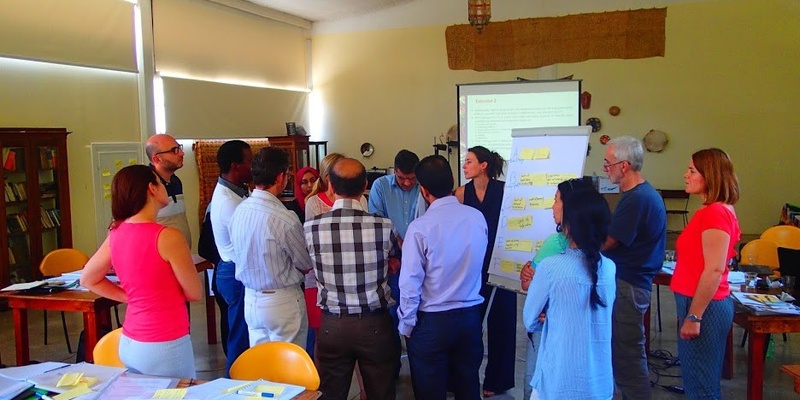The 1st Training Workshop on the PCE Facilitators Successfully Organized in Ronciglione Italy
Posted on lun, 18 Jul 2016, 15:08

Held in Ronciglione, Italy, from June 27th - July 9th, the 1st training workshop on the Phytosanitary Capacity Evaluation (PCE) facilitators brought together nine carefully selected phytosanitary experts from the MENA and the Eastern Europe regions and 13 staff of the FAO legal division and the IPPC. Workshop participants were trained to broaden and enhance their expertise in facilitating the application of the PCE tool.
Improving national-level coordination and coherence of plant protection programmes requires improved needs assessment and action planning. In an effort to improve existing or planned phytosanitary capacity systems the IPPC with the financial support of the STDF recently conducted the first of a series of two-week intensive trainings on facilitating the application of PCE.
Although the PCE is designed in principle as a self-assessment tool, its effective application may require the support of competent facilitators. Trainees were selected on the basis of a solid proven understanding of plant health, stakeholder management skills, knowledge of international and national phytosanitary control systems and familiarity with the IPPC.
Participants received an in-depth training on phytosanitary issues and systems, the logical framework approach and facilitation techniques. The training involved a mix of individual and group work, pre-training exercises and e-learning courses. Trained facilitators will thereafter be directed towards new opportunities to apply the tool in practice. In order to be included in the official roster of approved trainees, participants must meet at least 80% of the evaluation criteria over the course of the training, apply the PCE tool in practice and assist an NPPO to develop a draft national phytosanitary action plan.
The first tranche of participants expressed positive views and experiences of the training, commenting that the training: helps in understanding weaknesses, and combines a valuable exchange of legal and technical points of view, helping to inform, reform and update outdated knowledge on phytosanitary systems. Participants found the training especially valuable as it helps bring context to how phytosanitary systems work as a whole, showing the linkages between various national phytosanitary stakeholders, conducive for out of the box thinking and the interactive method adopted allowed learners to actively participate and remain attentive...making for a very well prepared and well led training.
By enhancing countries access to suitable PCE facilitators, it is expected that there will be an increase in the number of countries evaluating their national phytosanitary capacity and using PCE results towards designing national phytosanitary action plans to improve their countries plant health status.
The next training for PCE Facilitators will take place in Chang Mai, Thailand on 8 - 20th August 2016.
For more information on this IPPC STDF401 Project click here; and for more information on the Phytosanitary Capacity Evaluation tool click here

